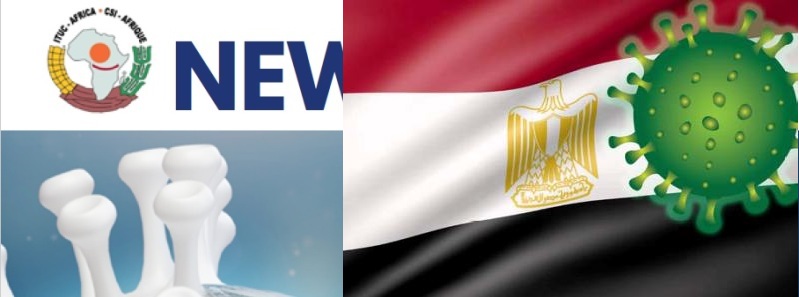
On February 14, 2020, the Egyptian Ministry of Health announced the first case of COVID-19 in the country detected at The Cairo international airport involving a Chinese national. As of May 30, 2020, Egypt had 22,082 confirmed cases with 5,511 recoveries and 879 deaths.
The great fragility of the Egyptian economy worries some experts about its ability to respond to the crisis. As the crucial sector of the Egyptian tourism recovered from the 2011 revolution, the 2013 coup and constant Islamist threats, the tourism industry estimated at 16 billion dollars has had to face the new threat of the COVID-19. According to the Egyptian Minister for Planning, Hala el- Saeed " the rate of economic growth in Egypt will fall to 2% in the next fiscal year 2020/2021, if the coronavirus crisis continues until December 2020".
Restrictive measures
Faced with the pandemic, the authorities have taken strict measures, notably by imposing a night curfew since March 25. Violators face heavy fines and even prison terms. The authorities have also decreed the closure of schools and universities, places of worship, museums and archaeological sites. Several villages were quarantined after the detection of cases of coronavirus.
On April 22, 2020, the Egyptian Parliament approved amendments to the 1958 state of emergency law, which confers significant additional powers on President Abdel Fattah al-Sissi and security agencies.
The Emergency Law (Law No. 162 of 1958) gives the security forces broad powers to detain and interrogate suspects indefinitely, without judicial review or being subject to limited judicial review. The law also authorizes mass surveillance, censorship, seizure of property and forced evictions, all without proper supervision by the judicial authorities.
The amendments allowed the president to order the closure of schools, the suspension of public services, the prohibition of public and private gatherings and the placing in quarantine of travellers entering the country. They also allowed the President to limit the trade in certain products, to requisition private medical centers and transform schools, educational centers and other public establishments into field hospitals.
The military prosecutor was also allowed to assist the prosecution in investigating crimes reported by the armed forces responsible for the enforcement of the law under the state of emergency. Anyone who violates the measures imposed during the state of emergency risks being sentenced to up to 15 years in prison.
The amendments have been strongly criticised and denounced by the organizations for the defence of human rights. In a press release, the NGO, Human Rights Watch (HRW), denounced them as a "cover" for the establishment of "new repressive powers”. The government insists that the amendments are to allow it to deal with the public health emergencies caused by the COVID-19 pandemic.
At the end of April, while maintaining the curfew for the month of fasting, Prime Minister Mostafa Madbouly informed the population about a gradual return to normalcy from the end of Ramadan.
In order to encourage a recovery in domestic tourism, the authorities recently announced the reopening of a quarter of the country’s hotels in mid-May. And from June 1, 50 % of the hotels would be operational.
Socio-economic measures
On March 14 President Abdel Fattah Sissi announced a 100-billion-pound (approx. USD 6.3 billion) fund to deal with the health crisis. The fund was to be used to improve the health facilities and support businesses. Indeed, 20 billion has been so far allocated to support the stock market and 50 billion to help the tourism sector. The government also announced an increase in the compensation for medical professionals in the amount of 75% which is actually 400 pounds (i.e. USD 25). Incentives to increase the number of doctors have also been undertaken.
Finally, President Abdel Fattah Sissi decided on April 1 to allocate a fund called " Long live Egypt" to cover the quarantine costs of Egyptians who returned from abroad before March 31. This was after dozens of Egyptians who returned from Kuwait expressed their refusal to pay the health quarantine costs of £ 28,000 (approx. USD 1,770) per person at the airport hotel.
Union involvement
Egyptian unions, carried out information and public awareness activities on the measures the government has put in place while emphasising the need for protective measures for workers.
The Egyptian health workers union denounced unacceptable conditions of work characterised by the low availability of tests for hospital staff and the lack of suitable protective equipment. Unions fear an increase in contamination following the relaxation of certain measures.
The trade unions need to continue in their difficult environment to bargain for better social protection system during the crisis and for the use of social dialogue to secure workplace rights and for achieving a broader and more inclusive national COVID-19 containment and recovery measures.
